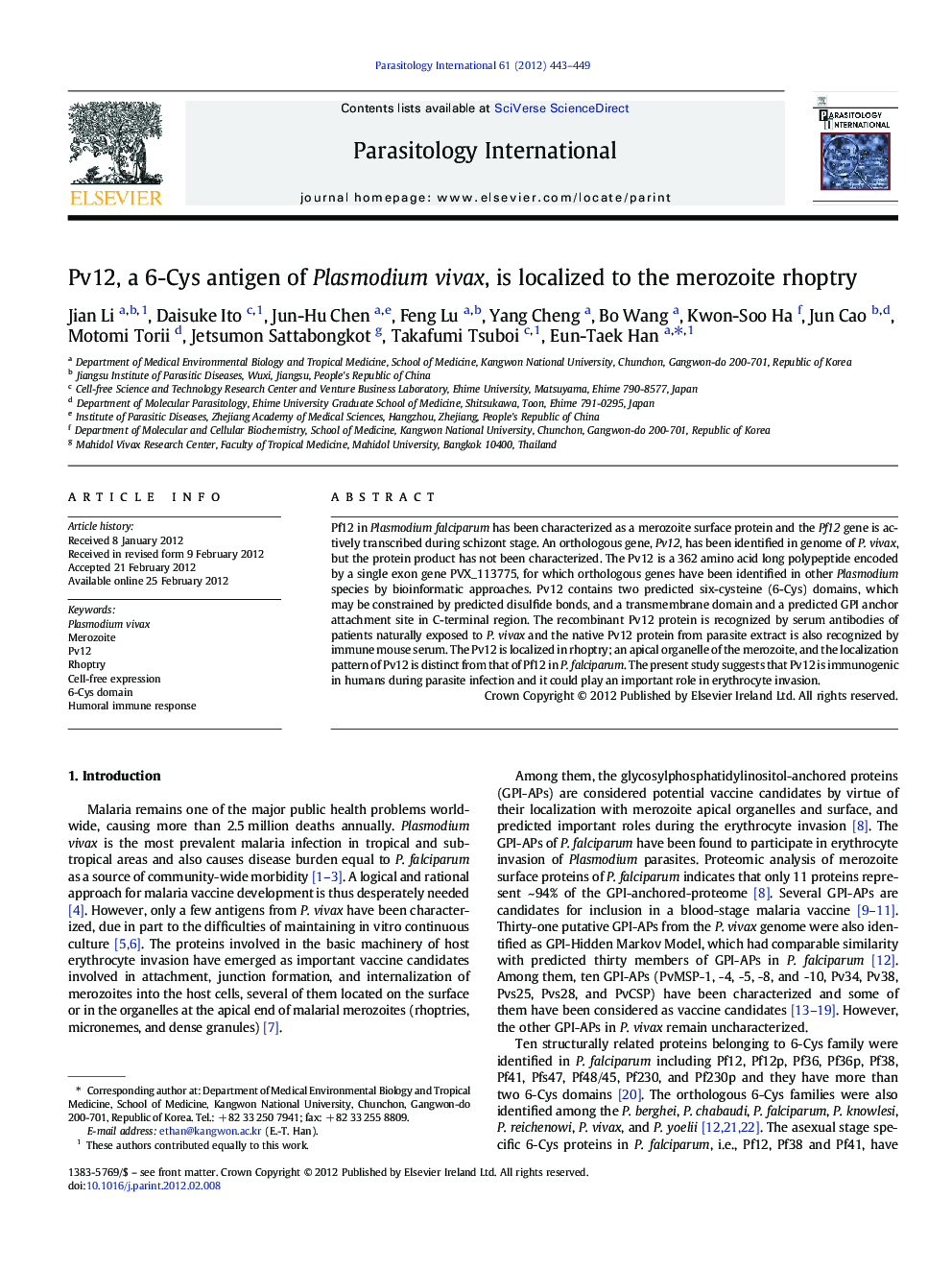| Article ID | Journal | Published Year | Pages | File Type |
|---|---|---|---|---|
| 3418063 | Parasitology International | 2012 | 7 Pages |
Pf12 in Plasmodium falciparum has been characterized as a merozoite surface protein and the Pf12 gene is actively transcribed during schizont stage. An orthologous gene, Pv12, has been identified in genome of P. vivax, but the protein product has not been characterized. The Pv12 is a 362 amino acid long polypeptide encoded by a single exon gene PVX_113775, for which orthologous genes have been identified in other Plasmodium species by bioinformatic approaches. Pv12 contains two predicted six-cysteine (6-Cys) domains, which may be constrained by predicted disulfide bonds, and a transmembrane domain and a predicted GPI anchor attachment site in C-terminal region. The recombinant Pv12 protein is recognized by serum antibodies of patients naturally exposed to P. vivax and the native Pv12 protein from parasite extract is also recognized by immune mouse serum. The Pv12 is localized in rhoptry; an apical organelle of the merozoite, and the localization pattern of Pv12 is distinct from that of Pf12 in P. falciparum. The present study suggests that Pv12 is immunogenic in humans during parasite infection and it could play an important role in erythrocyte invasion.
Graphical abstractFigure optionsDownload full-size imageDownload as PowerPoint slideHighlights► Expression of Pv12 during the mature schizont stages of the parasite's intra-erythrocytic cycle. ► Antigenicity of Pv12 in humans infected with vivax malaria parasites. ► Specific reaction of native Pv12 protein with anti-mouse serum sample. ► Localization of Pv12 in the rhoptry of merozoite.
